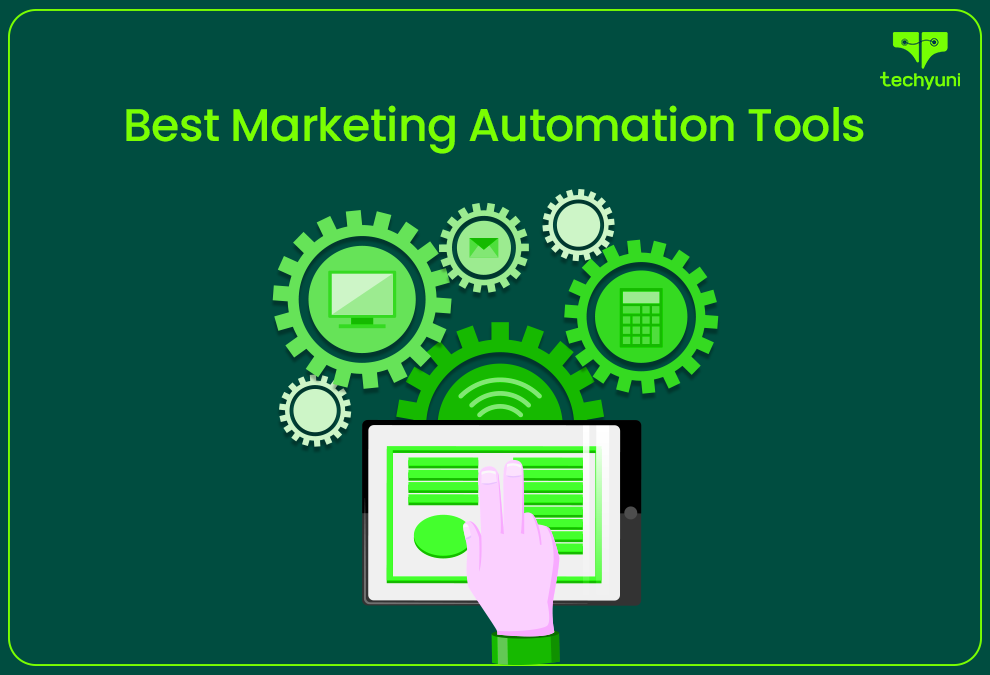
Best Marketing Automation Tools for 2025: Features, Pricing & Benefits
Discover the best marketing automation tool for 2025 to streamline workflows, boost conversions, and enhance customer engagement.
Marketing automation has become essential for businesses looking to scale their marketing efforts efficiently. In 2025, with the rise of AI-driven automation, predictive analytics, and customer data platforms (CDPs), companies need robust marketing automation tool to streamline workflows, enhance customer engagement, and optimize campaign performance.
A marketing automation tool helps businesses automate tasks such as email marketing, lead nurturing, customer segmentation, and social media scheduling. These platforms reduce manual effort, increase efficiency, and enhance personalization—key factors in modern digital marketing.
In this article, we provide an in-depth look at the best marketing automation tools for 2025, their features, pricing, and ideal use cases to help businesses choose the right solution.
What Is a Marketing Automation Tool?
A marketing automation tool is a software solution designed to streamline repetitive marketing tasks, such as:
-
Email marketing automation
-
Social media scheduling and management
-
Lead nurturing and segmentation
-
Customer data analytics
-
Omnichannel marketing campaign automation
By integrating with Customer Relationship Management (CRM) platforms and AI-powered analytics, these tools create data-driven marketing campaigns that increase conversion rates and customer engagement.
Why Businesses Need Marketing Automation in 2025
Marketing automation has become a necessity for businesses of all sizes because it:
-
Enhances efficiency – Automates repetitive tasks, freeing up time for strategy and creativity.
-
Improves lead nurturing – Delivers personalized experiences at scale.
-
Boosts engagement and retention – Sends targeted messages based on user behavior.
-
Provides data-driven insights – Tracks campaign performance in real-time.
-
Reduces costs – Increases ROI by eliminating manual inefficiencies.
Top Marketing Automation Tools for 2025
1. HubSpot Marketing Hub
Overview:
HubSpot is a comprehensive marketing automation platform offering tools for email marketing, CRM integration, and analytics in one seamless interface.
Best For: Businesses of all sizes looking for an easy-to-use, all-in-one marketing automation platform.
Key Features:
-
Drag-and-drop email automation
-
CRM integration with detailed lead tracking
-
AI-powered customer segmentation
-
Multi-channel campaign automation
-
Advanced reporting and insights
Pricing:
-
Free plan available
-
Paid plans start at $50/month
Pros:
-
Scalable solution for growing businesses
-
User-friendly dashboard
-
Seamless integration with sales and customer service tools
Cons:
-
Premium features require higher-tier plans
-
Initial setup complexity for advanced automation workflows
2. Marketo Engage by Adobe
Overview:
Marketo Engage is an enterprise-grade automation platform powered by AI-driven marketing intelligence and deep customer insights.
Best For: Large enterprises looking for customizable automation and AI-driven analytics.
Key Features:
-
AI-powered customer insights and behavior tracking
-
Predictive lead scoring
-
Multi-channel marketing automation
-
Advanced campaign personalization
-
Seamless integration with Adobe tools
Pricing:
-
Custom pricing (starting around $1,000/month)
Pros:
-
Highly scalable for large businesses
-
Powerful AI-driven analytics
-
Deep integration with Adobe ecosystem
Cons:
-
High cost may not suit small businesses
-
Steep learning curve for new users
3. ActiveCampaign
Overview:
ActiveCampaign specializes in customer experience automation, offering advanced email marketing and AI-powered workflows.
Best For: Small to mid-sized businesses needing AI-driven automation and personalization.
Key Features:
-
Behavior-based email automation
-
Predictive sending and AI-powered workflows
-
Integrated CRM with sales automation
-
SMS and chatbot marketing
Pricing:
-
Plans start at $29/month
Pros:
-
Affordable and scalable
-
Advanced automation features
-
Strong customer support
Cons:
-
Limited reporting features compared to enterprise tools
-
Slight learning curve for new users
4. Pardot by Salesforce
Overview:
Pardot is a B2B marketing automation platform designed for sales-driven businesses that require deep CRM integration.
Best For: B2B enterprises focused on lead generation and sales automation.
Key Features:
-
AI-driven lead scoring and segmentation
-
Advanced CRM automation
-
ROI tracking and reporting
-
Deep Salesforce integration
Pricing:
-
Starts at $1,250/month
Pros:
-
Industry-leading CRM automation
-
Highly customizable lead management
-
Robust analytics and reporting
Cons:
-
Expensive for small businesses
-
Requires technical expertise for setup
5. Mailchimp (mailchimp.com)
Overview:
Mailchimp has evolved into an all-in-one marketing platform, offering email automation, social media marketing, and AI-driven recommendations.
Best For: Small businesses and startups looking for an affordable automation solution.
Key Features:
-
AI-powered content recommendations
-
E-commerce and social media integrations
-
Automated customer segmentation
-
Drag-and-drop email editor
Pricing:
-
Free plan available
-
Paid plans start at $10/month
Pros:
-
Affordable and beginner-friendly
-
Great email analytics
-
Easy-to-use interface
Cons:
-
Limited advanced automation features
-
Customization is somewhat restricted
How to Choose the Right Marketing Automation Tool
1. Identify Your Business Goals
Determine whether you need email automation, CRM integration, AI-driven analytics, or omnichannel marketing.
2. Compare Features
Look for key features like:
-
AI-powered insights
-
Omnichannel campaign management
-
Lead scoring and CRM integration
3. Assess Scalability
Ensure the tool can grow with your business needs.
4. Analyze Pricing
Compare pricing plans, including free trials, to find the best fit for your budget.
5. Check Ease of Use
A user-friendly interface ensures quicker adoption by your marketing team.
Related: How AI in Marketing is Transforming Business Strategies
Conclusion
A marketing automation tool is an essential asset for businesses looking to streamline campaigns, enhance customer engagement, and maximize ROI in 2025. With the integration of AI, predictive analytics, and omnichannel marketing, businesses can now automate complex workflows with ease. Whether you're a startup, mid-sized company, or enterprise, selecting the right automation tool will help you stay ahead in the competitive digital landscape. Investing in the right marketing automation platform today will ensure future growth and success in your industry.